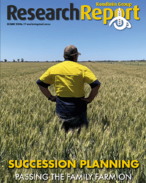This article is 3 years old. Images might not display.
The Australian Bureau of Agricultural and Resource Economics and Sciences estimates farmers dedicate on average 66 days and spend about $11,500 on weed control and $8000 on feral animal control per property every year.
Announced this week by Agriculture Minister David Littleproud and Environment Minister Sussan Ley, the Commonwealth Government will invest a further $20 million in pest and weed control, which will be matched dollar for dollar by each state and territory.
"National collaboration on this critical problem is of paramount importance. Pests and weeds don't observe state boundaries and their effective control requires an all-of-nation approach," National Farmers Federation (NFF) chief executive officer, Tony Mahar said.
The investment will facilitate projects to reduce the overall burden of pests and weeds on-ground through activities such as coordinated control, destruction and removal: including trapping, baiting, culling and biological controls.
"Pests and weeds are a huge and growing problem for Australia's agriculture and environment," Minister Littleproud said.
"Projects will reduce the overall burden of pests and weeds on-ground through activities such as coordinated control, destruction and removal, including trapping, baiting and culling along with biological control release.
"They will target nationally significant pest and weed species, such as feral deer, feral pigs, cats, foxes, rabbits, wild dogs and a range of invasive weeds across identified hot spots," the Minister said.
Projects will have application both on private and public land. State and territory governments will be responsible for the delivery and the identification of projects. Projects will be subject to Federal government approval.
"Pests such as pigs and deer and weeds like African lovegrass and serrated tussock are also massive risks to biodiversity, competing with native pastures and contributing to erosion and the degradation of soils and waterways," Mahar said.
Mahar said it was essential for state and territory governments to consult with farmers on the prioritisation and development of projects.






















